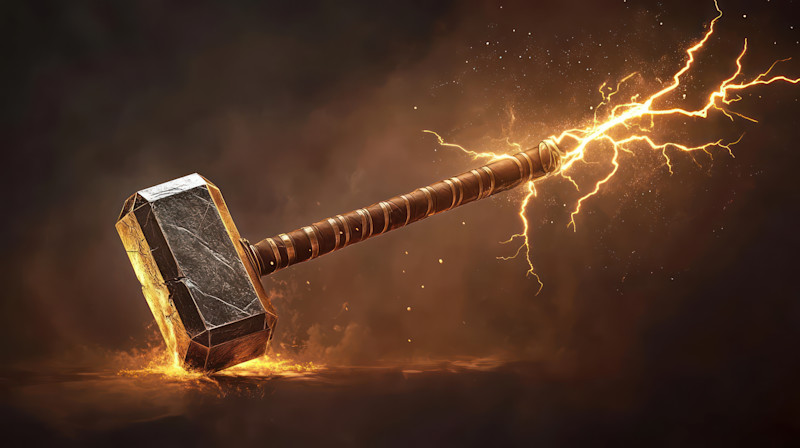“If everybody else seems to be doing it one way, there might be more opportunity the other way.”
– Andrew Scheuermann, Co-founder of Arch Systems Inc.
This is a published version of the AMT Tech Report newsletter. You can sign up to get the Tech Report in your inbox here.
1. Less Carbon, More Boom
New Frontier Aerospace just ran a successful hot fire test series on Mjolnir, a compact, 3D printed, full-flow staged combustion rocket engine. Fueled by biowaste-based liquid natural gas, it’s efficient, net carbon negative, and ready for hypersonic VTOLs, orbital transfer vehicles, and whoever else needs serious propulsion. Backed by NASA and the Defense Innovation Unit, Mjolnir is now on the market, aiming to make spaceflight cleaner, faster, and less wasteful.
2. Smells Like Coffee; Prints Like Plastic
Furniture that smells like espresso and skips the landfill? Pour me a cup of that! Meet Haddy, a furniture disruptor using 3D printing and circular production to kick pressboard to the curb. By combining design chops, regional microfactories, and RFID-tracked recycling, Haddy makes sustainable, stylish furniture that’s actually built to last – not outlive the planet. Bonus points for robotic arms and lights-out manufacturing.
3. Steelin’ Time
MIT and UMass Amherst are testing a new way to fix corroded bridges: 3D printing steel directly onto the rust. Their cold spray method blasts powdered steel at beams in layers using heated compressed gas, like additive duct tape for infrastructure. It’s still early days, but one test bridge in Massachusetts is getting the treatment before it’s demoed. If it holds up, cold spray could be a game-changer for structural repair. Is this a step toward saying goodbye to total teardowns?
4. Solid-State Batteries That May Actually Ship
Ion Storage Systems may have cracked the production of solid-state batteries. Their ceramic-layer design avoids the usual swelling, shorting, and startup death spiral that plagued previous developers. Their cells last 50% longer, don’t catch fire, and fit into existing lithium-ion lines. Now in pilot production and backed by ARPA-E, Ion’s shipping test units to big-name (but hush-hush) electronics firms – and the DOD. If they scale, this might be the first solid-state tech that doesn’t just live in a slide deck.
5. Carbohydrate Fiber
BMW’s ditching carbon fiber in their trim for a plant-based composite that looks like Harris Tweed with a racing license. Co-developed with Bcomp, this flax-fiber alternative is headed for M cars, starting with the track-ready M4 GT4, then road cars. It cuts production emissions by 40% and maintains the lightweight performance vibe. You can’t eat your hood yet, but your next Bimmer might be a little greener without losing its edge – or its curb appeal.
To get the latest tech developments delivered directly to your inbox, subscribe to the weekly Tech Report here.
To hear the latest in additive manufacturing, material removal, automation, and digital manufacturing, subscribe to the AMT Tech Trends podcast here.






